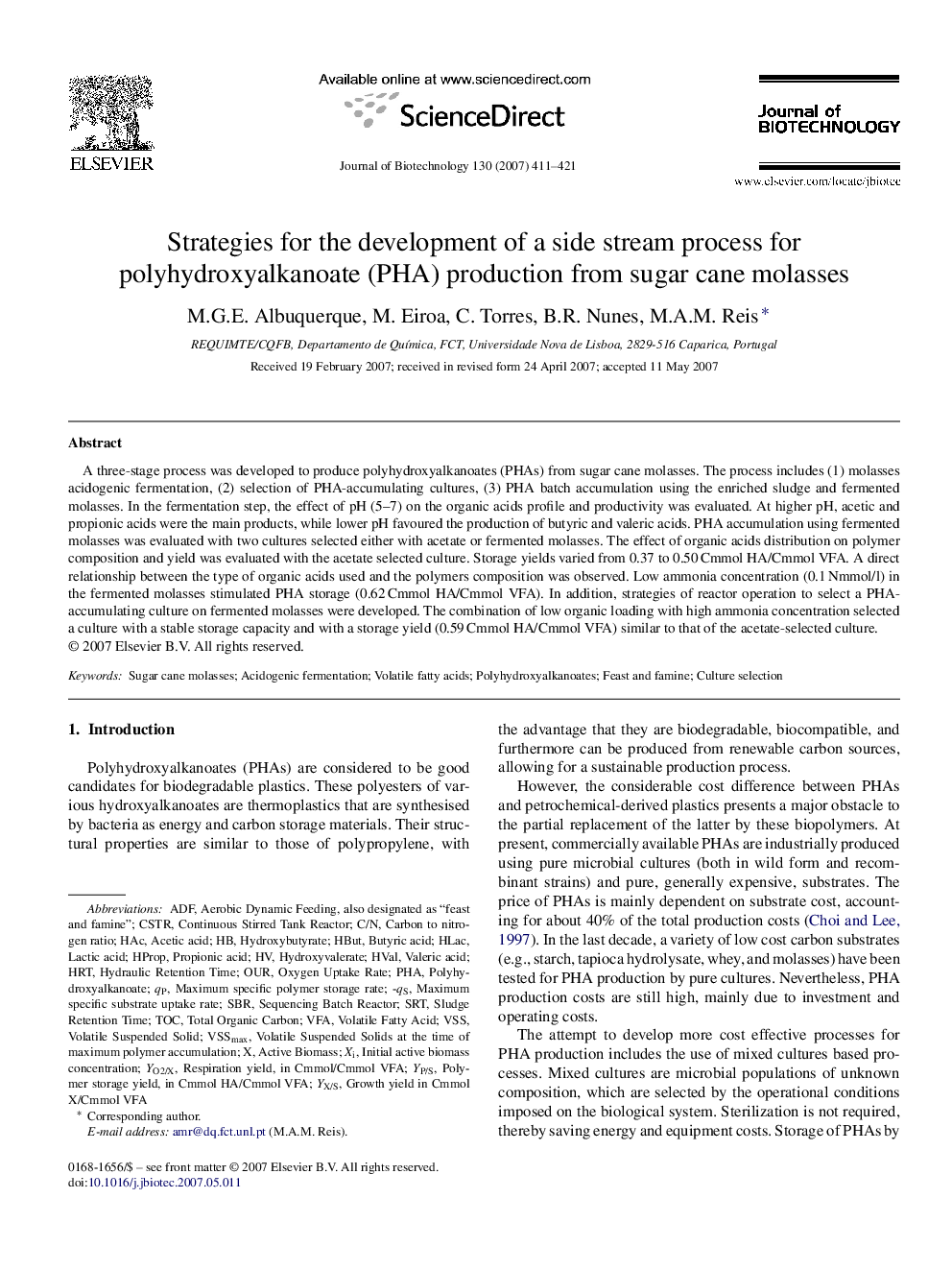| Article ID | Journal | Published Year | Pages | File Type |
|---|---|---|---|---|
| 25195 | Journal of Biotechnology | 2007 | 11 Pages |
A three-stage process was developed to produce polyhydroxyalkanoates (PHAs) from sugar cane molasses. The process includes (1) molasses acidogenic fermentation, (2) selection of PHA-accumulating cultures, (3) PHA batch accumulation using the enriched sludge and fermented molasses. In the fermentation step, the effect of pH (5–7) on the organic acids profile and productivity was evaluated. At higher pH, acetic and propionic acids were the main products, while lower pH favoured the production of butyric and valeric acids. PHA accumulation using fermented molasses was evaluated with two cultures selected either with acetate or fermented molasses. The effect of organic acids distribution on polymer composition and yield was evaluated with the acetate selected culture. Storage yields varied from 0.37 to 0.50 Cmmol HA/Cmmol VFA. A direct relationship between the type of organic acids used and the polymers composition was observed. Low ammonia concentration (0.1 Nmmol/l) in the fermented molasses stimulated PHA storage (0.62 Cmmol HA/Cmmol VFA). In addition, strategies of reactor operation to select a PHA-accumulating culture on fermented molasses were developed. The combination of low organic loading with high ammonia concentration selected a culture with a stable storage capacity and with a storage yield (0.59 Cmmol HA/Cmmol VFA) similar to that of the acetate-selected culture.
